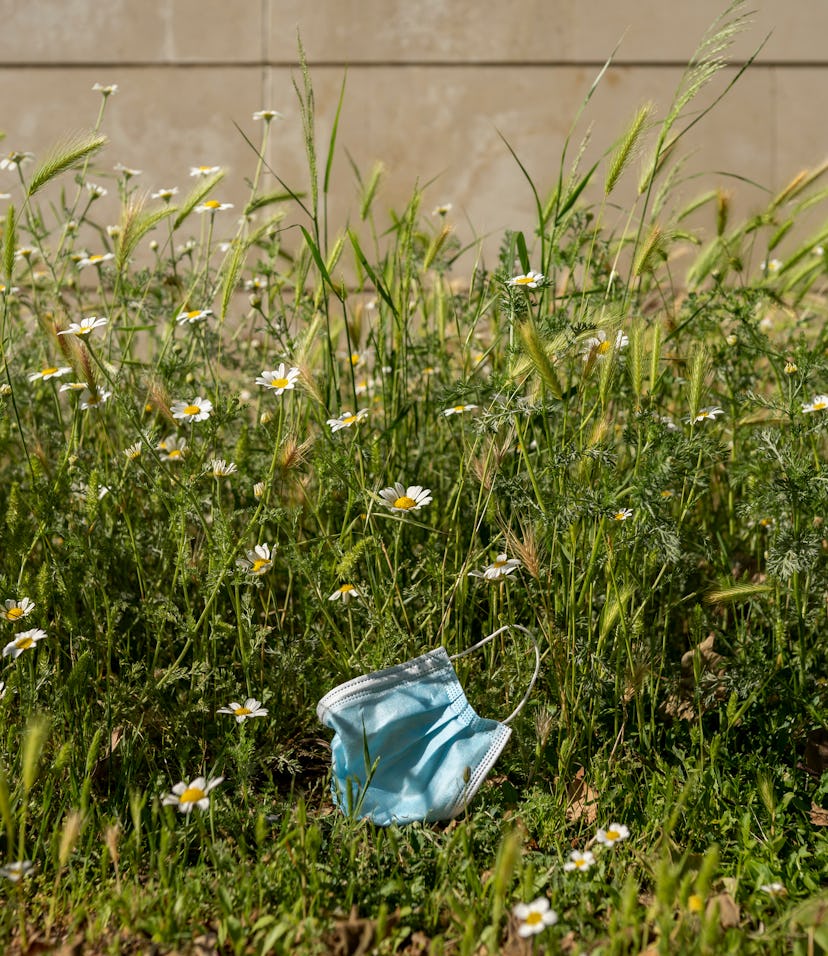Wellness
Colds Are Back!
And I’m scared to tell you that I have one.

Charlotte Owen has a cold. Yes, it’s me; I have the cold. Are you judging me yet? It’s fine if you are. I am too.
“How did this happen?” I whispered to myself as I sloshed down another steaming cup of tea, hoping it would soothe the stinging in my throat. I asked the question again as I shined my iPhone flashlight into my mouth, looking for something conclusive on its back wall.
It felt like the right thing to do, to check for something, though there was no need. It was a cold, the garden variety, a virus so boring it doesn’t even have its own name, let alone a number. But here’s the kicker: Colds feel different on the heels of a pandemic.
My first thought when I realized I was Not Quite Right was something like, Oh my god, how embarrassing. Had I dropped my mask too soon? I’m more than two weeks past my second Moderna dose, so I knew by CDC guidelines that I hadn’t. But those rules are for COVID and I didn’t have COVID. I had something ordinary and unremarkable, the type of virus that leaves you with a sniveling nose and a ringing in your ears. I used to get a cold or two every year, so why did I feel so unsettled?
Would I be reneging on my civic duty if I didn’t confess to my low-grade sniffles in advance?
For one thing, colds don’t feel quite so “common” anymore. The last one I had was on the cusp of autumn-winter 2019. Remember 2019? Me neither.
The rules of our social contract have changed irrevocably since then. In the past, I looked scornfully at people who flaked on plans or didn’t show up to work because of a runny nose. Why couldn’t they just push through it? This is a belief seeded in many of us as kids, when 100% attendance certificates were awarded at the end of each school term to those who never took a day off, a marker of pride for any British parent.
Most of the time these weren’t kids who never got sick; they were simply the ones who were forced to power through when they did. But what does “powering through” even mean now that nearly 3.4 million people have died from a highly contagious, airborne virus transmitted person-to-person?
The day I woke up feeling lousy I was supposed to see a friend for lunch, before visiting a colleague and her family for dinner in her apartment. Based on my old logic — namely, that illness was something to be overcome with extra effort, rather than rest — I would have gone. But we’ve spent the last 18 months being told we are not only responsible for our own health, but that of our neighbor, too. Granted, a cold isn’t likely to be fatal, but would I be reneging on my civic duty if I didn’t confess to my low-grade sniffles in advance?
This infection will eventually pass, but it will take longer for us to shake off the guilt and shame that lingers around contagious illnesses after this pandemic.
I decided to play it by the book. I opened my Notes app on my phone and drafted messages where I unveiled the ickiness of my sore throat before lobbing the ball into the other side of the court. “I’m up for whatever you’re comfy with,” I said, happy to wash my hands of the decision.
My colleague agreed to reschedule — her children were also sick with their first post-mask cold — but my other friend pushed things back on me and said he was fine with it, but it depended on how I felt. That’s when I realized that my social anxiety was distracting me from the fact I felt absolutely rubbish. The following day I woke up unable to hear out of one ear, and a trip to the doctor confirmed an inner and an outer ear infection. Though I now needed antibiotics, this did make me feel a smidge better. Definitely not COVID, I whispered to myself in the Uber home.
This infection will eventually pass, but it will take longer for us to shake off the guilt and shame that lingers around contagious illnesses after this pandemic. I didn’t engage in “risky behavior” before getting sick, but in drafting my confessional texts, I felt like I was declaring an STI to a new sexual partner. This ickiness about “catching something” isn’t anything new. My first boss in magazines, a much-loved sexagenarian with an impeccably aristocratic blow dry, had once declared the presence of little bugs in our office as the cause for the rest of the building to call us “sluts.” I thought she was joking, but it turns out the 15th century meaning of the word is “dirty and slovenly.” Millennials might have reclaimed that particular word, but we’re arguably more obsessed with cleanliness than ever.
I hope the stigma of illness isn’t a course we walk for much longer. We need to be patient while we work out the new etiquette of living alongside one another in close proximity. Plus, hyper-vigilance is fine, but even masks won’t do much to protect you if someone with a cold is coughing in the vicinity of your eggs Benedict at brunch. Bad luck still exists, and there’s no moral value in when it strikes. Life must go on, one sniffle at a time.
This article was originally published on